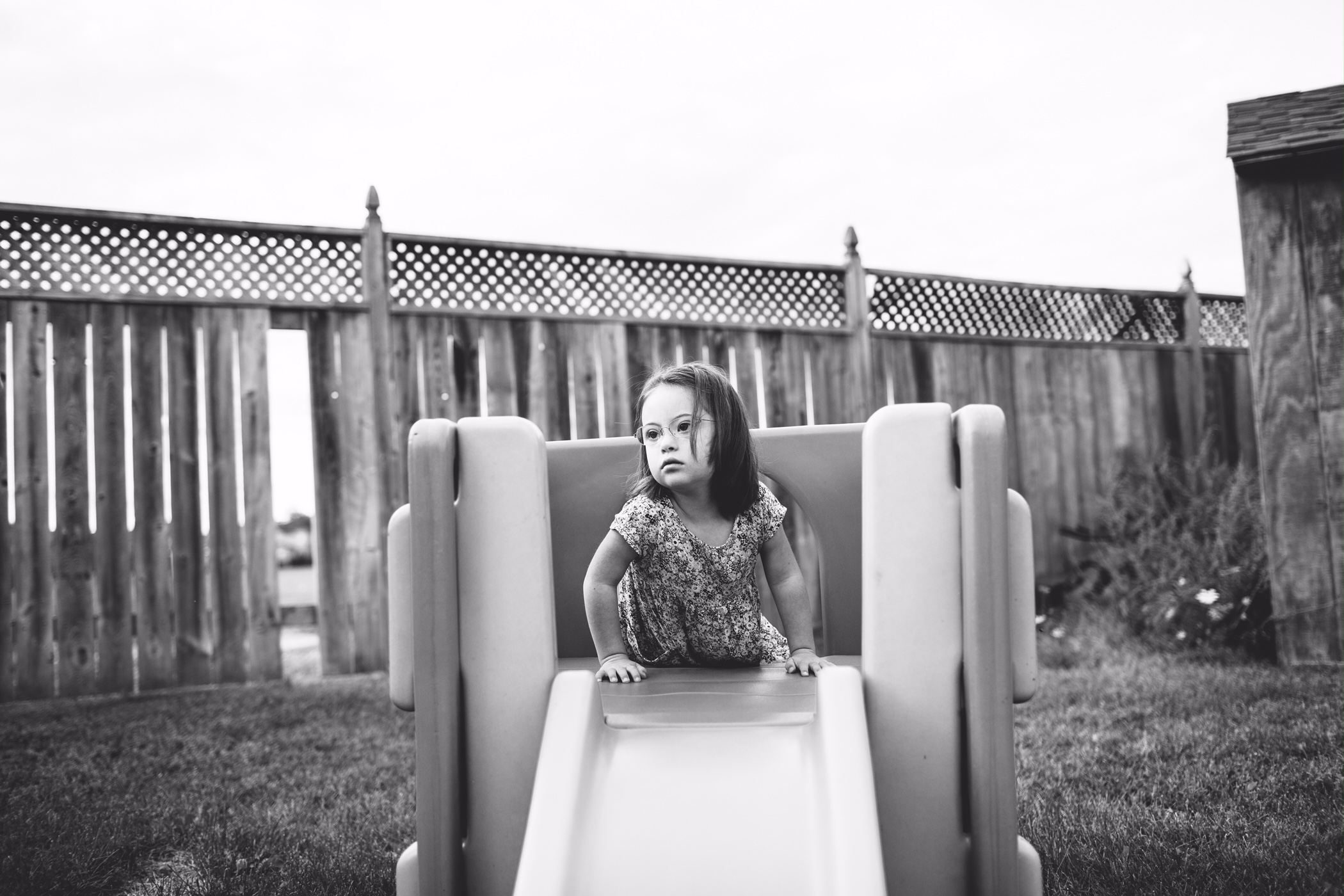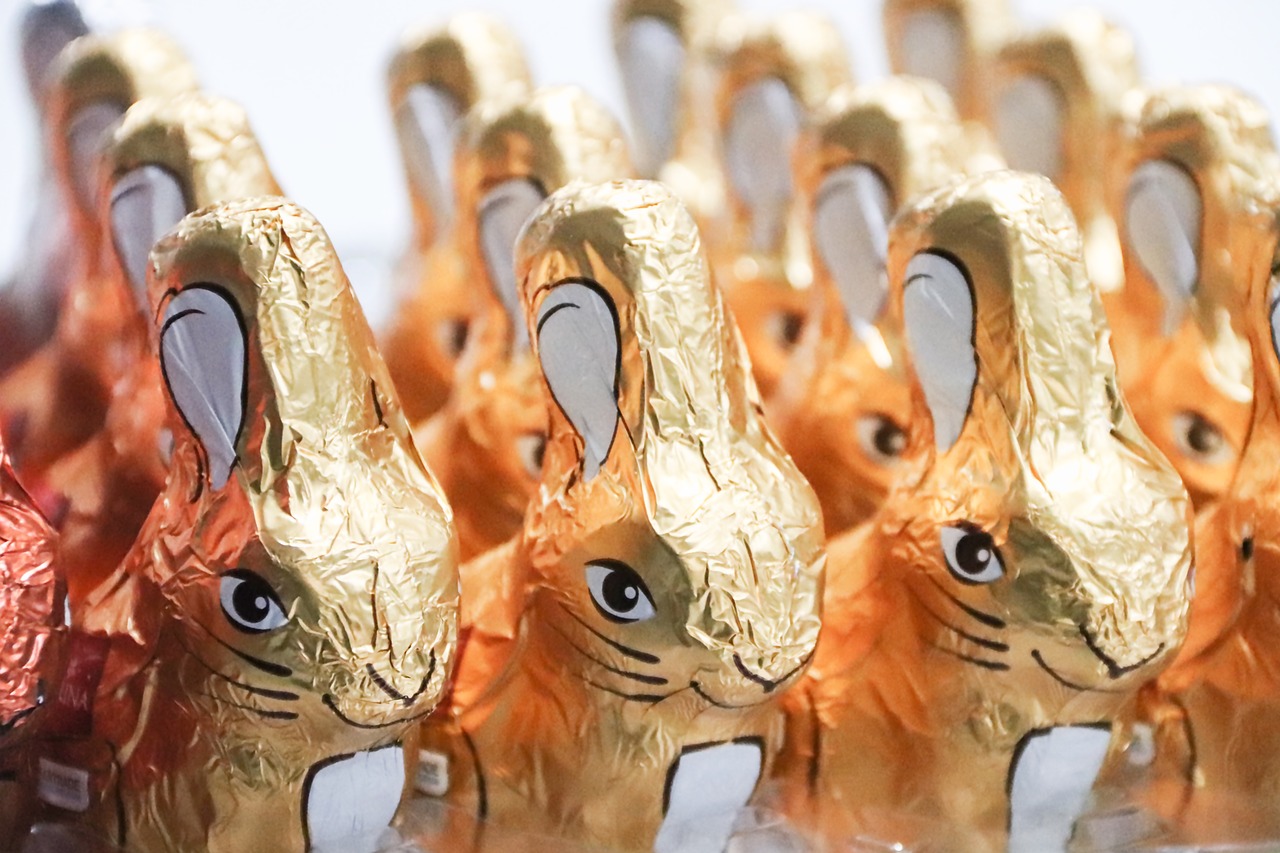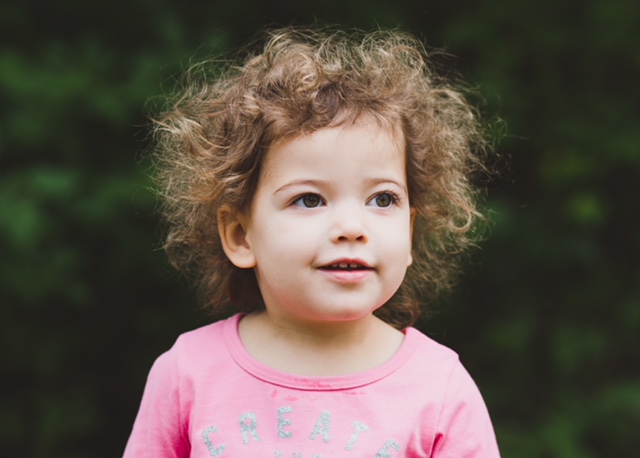My children bring out my best (and worst) qualities. I’m not sure if that makes me sound like a good or bad parent, forgetting that such judgements shouldn’t be made, but I know it makes me a human being. The resulting transformations and affirmations of self come about in two ways: the easy way, and the hard way.
Let’s start with the easy way, shall we.
The easy way was last night putting Penelope to bed. I’m fighting a cold, but she insisted on mommy’s presence and I know why. She is enchanted with our nightly ritual of oral story telling. As I laid downstairs on the couch, feeling miserable, but peaceful and resting, my eyes glued to the page of a book, she tugged away at my arm, “Come on mommy! It’s bedtime! You have to go to bed now! I need you!”
“Oh sweetheart, daddy’s going to tell you a story tonight.”
“No!”
“He’s going to tell you the story of the purple octopus.” Purple’s her favourite colour.
She considered this, and when Dan picked up the thread, playing along, she weaved her way upstairs and into bed. But sleep never came, and so I found myself by her bedside.
“Mommy, now can YOU please tell me the story of the purple octopus?”
Her poor daddy tried, but as though co-conspirators, Penelope and I huddled together waiting to hear the REAL story, the one her mommy would make up. I believe she was employing the same rationale Ariel uses when it comes to her lunch cesar salads. I wash and cut up two pieces of romaine lettuce which go in a square container. I then put one scoop of dressing in a separate container and Ariel mixes the two at school. Salad made, voila! If her dad makes her salad, following the exact same steps I might add, it inevitably comes home uneaten, the comment being, “mommy just makes it better.”
I realized, sitting there at Penelope’s bedside and making up the story of the purple octopus who lived deep down in the ocean and wrapped itself around the submarine Penelope was riding in because it wanted a hug, that I was completely delighted and in my element storytelling with my child. Penelope was equally enthralled, which only served to reinforce this notion I have of my third child being a kindred spirit. We get each other. Our personalities jive. I rarely find myself feeling anger toward Penelope’s behaviours because I understand her so well; I know exactly where she’s coming from. So there’s that, but also because it is easy to do what I naturally enjoying doing in the company of someone who adores and appreciates my doing it.
These are the moments of parenting when I don’t have to stretch myself to grow, I’m simply doing what I love best, being myself, and my children are benefitting. These are the moments that effortlessly evoke my best self.
Now let’s talk about the hard way we grow as parents. The lessons we learn from parenting by taking the long way around.
Often to grow we need to fail. We need to get it wrong so we can figure out how to get it right. Elyse’s hair has been one of those things we have failed at many times, but for which we are striving to get right. For as long as I can remember, my attempts to brush Elyse’s hair have brought on tears. And I’m not talking about a few tears. I’m talking about wailing, screaming, outrage. Not every time, but often enough that there’s a sore spot there. The mere mention of the brushing of her hair can bring wrath and meltdown city (as Dan and I call it). We have tried everything when it comes to brushing her hair. Different combs, brushes, de-tanglers. Mom or dad brushing gently right out of the tub, or when her hair’s dried, or the next morning; Elyse brushing her own hair, keeping it long or cutting it short, brushing more frequently or less frequently, trying to build in a routine, trying to brush at her schedule and pace to varying degrees of success. We’re finally at a better place with her hair brushing – she does it mostly herself, but we still have to help her do her hair. I cannot say that this screaming and crying behaviour from Elyse evokes the best behaviour from me. Of course it doesn’t! At a certain point, her tears left me feeling angry, resentful, and helpless. This has to get done! What do you want from me? I want to scream. It’s hard to admit when you’re a mother feeling like she doesn’t know what her child wants or needs. Thank goodness for siblings and insight.
Over the weekend, Elyse had her dance recital. I should make it clear to you that dance and music are Elyse’s life. She lives through movement, and in moments of tension, we often find solace and common ground through music and dance. Knowing full well I would be on hair duty for the recital, I took many deep breaths in preparation for the tears that would ensue in getting her ready to perform. Even as adults, it’s hard to break a pattern of thought and to think positively about a situation that once, or many times, has caused you emotional hardship. Burn me once…
Anyway, Elyse was a champ getting ready. She let me brush through her incredibly long hair with a comb after Dan did her tub, and she did an initial brushing herself. She staved off the tears that eventually rolled down her cheeks for as long as she could, but then they came, accompanied by short outbursts and wails as I ever gently worked her hair into two buns. Her tears made me feel bad. A dance recital isn’t a necessity in life, and yet I was putting her through this hair torture – for what? But to counter that thought, you can argue that nothing is necessary, and damn it, if my kids start something and reach a certain point they are going to follow it through. Tears or no tears.
I remained calm and composed in my role as hair dresser, though coursing below the surface was a long-standing annoyance over the responsibility and the difficulty of doing Elyse’s hair; the lengths I go not to upset her, the inevitability of her upheaval. On top of it all, I don’t particularly enjoy doing hair.
Ariel wanted to be in the room to watch Elyse get her hair and makeup done. Had it been me in her shoes, I would have bailed when Elyse started crying, but Ariel insisted on being in the tiny bathroom with us, and she was the one who comforted her sister better than I could with comments like “Your hair is going to look so pretty, Elyse!” and “You’re watching Teen Titans! Is that your favourite show?” Standing there, hairspray can in hand, I was amazed by how much Ariel had inside of her to give. She had more of herself to give than I did, of that I felt sure, and in that same moment, I lived an experience I have been writing about and talking about for years; that through her tears, Elyse was also giving all she had to give. She was at her max and that was it, there was no more. Expressing her frustrations about getting her hair done through her tears was all she had to give. I was giving all I had to give too, but I could do better. I could do better and be better by realizing that my child was doing the best she can, and that each of us only has so much to give. Myself included. I could be better by realizing that accepting the people you love for who they are, and for what they have to give, is what unconditional love is all about.
I realized I was setting myself up to fail by expecting that Elyse should behave the way I want her to, the way society would dictate, instead of just accepting her for who she is. Nobody willingly wants to disappoint their loved ones through their behaviour. She is communicating in the only way she knows how. And with that idea came the thought and true understanding of she is doing the best she can. I am too focused on do it my way – the right way – as the only way, when of course that is not true. Elyse, all my children, show me regularly that there is more than one way of doing things. I would be wise to pay attention.
While Ariel pointed the way through her shining example of unconditional love, it was Elyse who forced me to come around the hard way, who reached for that most sequestered place of my heart and called it forth by saying, here, even when it’s hard, this is what it means to love me.







